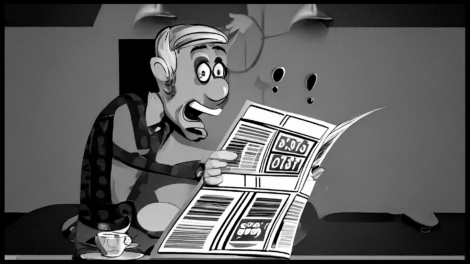The Texas Lottery, once a beacon of hope for instant fortune, now faces a crisis that has captured attention both statewide and nationally. Two massive jackpot wins—occurring in 2023 and 2025—have triggered widespread suspicion. Consequently, a complex narrative has emerged, interweaving allegations of manipulation, international conspiracies, and urgent demands for reform. This compelling saga traces the lottery’s transformation from a reliable educational funding source into a subject of intense scrutiny, drawing in the Texas Rangers, the State Attorney General, and even sparking debates about the lottery’s complete dissolution.
The 2023 Jackpot: A $95 Million Plot
In April 2023, the Lotto Texas jackpot reached an extraordinary $95 million, igniting dreams across the state. However, a sophisticated group devised an audacious strategy to manipulate the odds. Their ingenious plan involved purchasing 25 million tickets to cover nearly every possible number combination. They strategically selected four Texas retailers with multiple lottery terminals for this operation. During an intense 72-hour period, they systematically generated ticket after ticket. When the winning numbers appeared, Rook TX, a New Jersey-based entity, emerged to claim the prize. They chose the immediate cash payout option, receiving $57.8 million before taxes, initially appearing as a bold but legitimate gamble.
Yet, the Houston Chronicle’s investigation revealed a startling truth—an international conspiracy. A Maltese organization orchestrated the operation, backed by substantial funding from a London-based financial institution. This revelation raised troubling questions about how foreign entities could execute such an elaborate scheme without detection by Texas lottery officials. The Texas Lottery Commission’s apparent inaction and reluctance to investigate the buyers’ identities or funding sources proved particularly concerning. Their passive response and seeming unwillingness to examine crucial details ignited public outrage and catalyzed what would become a significant scandal.
The 2025 Jackpot: An Electronic Update
On February 17, 2025, the Lotto Texas jackpot swelled to $83.5 million. A winner emerged through Jackpocket, a sophisticated courier app owned by DraftKings. The winning ticket originated from Winners Corner TX LCC in Austin, an establishment that raised eyebrows with its unprecedented 47 lottery terminals—far exceeding the typical number found in ordinary shops. Despite Jackpocket’s daily purchase limit of $600, implemented to prevent mass-buying schemes, the concentration of terminals in one location suggested a potential loophole. The public, still haunted by the 2023 scandal, scrutinized this win with heightened suspicion. Questions arose about whether this represented another manipulation, now cloaked in technological sophistication. The Texas Lottery Commission, however, acted swiftly this time. By February 24, 2025, they had confiscated the excess terminals and instituted a new regulation: no establishment could operate more than five machines. Yet for many Texans, this intervention came too late—their faith in the lottery system had already crumbled.
Probing the Mystery
The investigation commenced immediately with methodical precision. Investigators meticulously documented evidence and conducted thorough witness interviews. They dissected the data systematically, determined to reconstruct the sequence of events. Their primary objective remained clear: establish facts and draw concrete conclusions. The team scrutinized every angle, paying particular attention to previously overlooked details. Their unwavering dedication to uncovering the truth manifested in their painstaking analysis. Each discovered piece of evidence brought them closer to understanding the day’s events.
The twin scandals of 2023 and 2025 demanded decisive action from Texas authorities. Governor Greg Abbott responded on February 24, 2025, by deploying the Texas Rangers to investigate both lottery incidents. He emphasized the paramount importance of maintaining public trust in the state’s lottery system. Attorney General Ken Paxton launched his own investigation two days later, focusing on potential legal violations and the troubling involvement of foreign entities in what appeared to be a sophisticated scheme to manipulate the system. The possibility that outside forces could infiltrate a state-regulated gambling operation evoked elements of a contemporary thriller, leaving officials and citizens alike deeply concerned about the integrity of their beloved lottery.
The Texas Lottery Commission sprang into action with swift, calculated measures. They decisively banned third-party courier services and issued stern warnings to retailers, threatening license revocation for any collaboration with these services. A crucial meeting looms on March 4, 2025, to dissect these issues thoroughly. While their response demonstrates commitment to reform, it also reveals their glaring unpreparedness for the digital lottery age.
Heat from the Public and the Bigwigs
Public outrage erupted swiftly and intensely. Reports surfaced about disturbing irregularities—money laundering through delivery applications and minors accessing lottery tickets online. The situation eerily mirrored the devastating Enron scandal that had previously shaken Texans’ trust. This mounting anger thundered through the legislative chambers, catalyzing immediate action. Lawmakers responded by introducing Senate Bill 28, a direct assault on online lottery sales, reflecting their judgment that regulatory oversight had catastrophically failed. Lieutenant Governor Dan Patrick escalated the situation further by proposing the nuclear option: dismantling the entire lottery system if public confidence couldn’t be restored. This suggestion carried enormous weight, given the lottery’s vital role in funding education and other essential state programs.
Reminders of Yesterday and Unsure Tomorrow
The current crisis echoes past lottery scandals, particularly the 2017 Hot Lotto controversy that exposed internal manipulation and forced systematic reforms. Yet Texas faces an entirely different beast now. Instead of internal corruption, they’re battling sophisticated external players who exploit technological vulnerabilities and regulatory blind spots. The 2023 victory orchestrated by a Maltese individual using London-based funds reads more like a financial heist than traditional lottery fraud. Similarly, the 2025 win through a delivery application demonstrates the evolving complexity of digital lottery exploitation.
The Texas Lottery Commission faces a pivotal legislative review on March 17, 2025. Lawmakers will contemplate various options, including the possibility of complete shutdown. The spotlight intensifies as investigations multiply, transforming what began as suspicious jackpot anomalies into a cautionary tale about digital gambling vulnerabilities. These investigations and subsequent reforms will likely establish new benchmarks for lottery security and integrity in the digital era. The outcome will reverberate throughout America’s lottery systems, potentially reshaping how states approach online gambling security. The stakes couldn’t be higher—not just for Texas, but for the future of digital lottery operations nationwide.
The Texas Lottery Scandal is monumental indeed, but it is not the only one of it’s size. There have been other historical Lottery Scandals throughout history. One such incident you can read on Goated Lotto Secrets: Pennsylvania’s Lottery Scam









